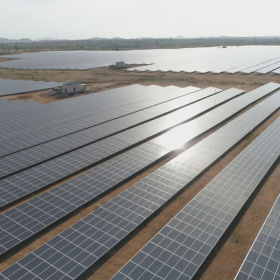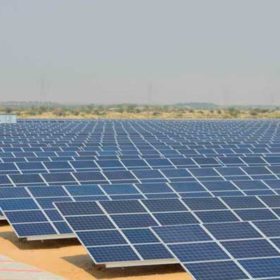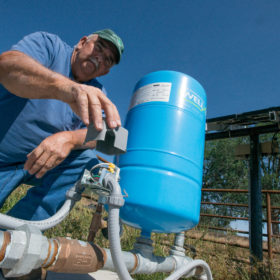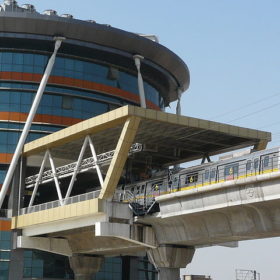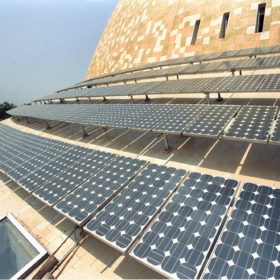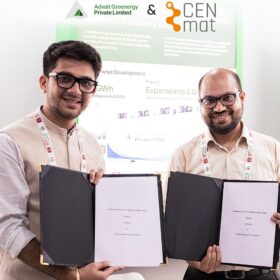L&T bags 500 MW solar EPC contracts
Larsen & Toubro has secured EPC orders totaling 500 MW grid-connected solar capacity, in addition to significant contracts in India and overseas for power transmission and distribution.
WoodMac predicts India’s renewables installation to fall by a fifth due to lockdown
Over 21.6% or 3 GW of solar and wind installations will get delayed due to supply and labour disruptions caused by the ongoing Covid-19 lockdown, according to the analysts which in a January report forecast the country to add over 15 GW of renewable capacity this year.
ARCI develops fuel cell technology to power disaster management systems
Fuel cell systems provide sustainable electricity using hydrogen gas without the need of grid power as required by conventional battery backup systems, making them highly useful for applications like Emergency Operation Centres which need to respond immediately during an emergency situation with state-of-the-art communication systems.
Larsen & Toubro bags 50 MW solar project in Tamil Nadu
Following a 20 MW floating solar project in Uttar Pradesh last month, Larsen & Toubro has won an order to design and construct a 50 MW solar plant in Tamil Nadu.
Thermal energy giant NLC aims to touch 4 GW solar capacity by 2025
Having touched 1404 MW of renewable capacity as on January 31, 2020, the state-owned producer aims to add further 2847 MW to reach 4251 MW (4 GW from solar and 251 MW wind) by 2025.
A multi-level inverter for solar water pumps
Scientists in India have tested a new inverter topology with a single-phase, induction-motor water pump. The seven-level inverter, with five power semiconductor switches, is said to be particularly efficient at reducing switching losses thanks to a pulse width modulation technique.
Renewable energy: 7,592 MW commissioned in first nine months of the fiscal year
Capacity additions for the current fiscal year are set to exceed the previous accounting period’s 8,532 MW. With Rs405 billion invested in clean energy in the last fiscal year, spending in the first nine months of 2019-20 has been estimated at Rs367 billion.
Chennai Metro tenders for renewable power purchase from group captive projects
The Chennai Metro Rail Limited seeks to procure 90 million units/annum of solar or solar-wind hybrid power, or 72 million units/annum of wind power through tariff based competitive bidding. Tariff ceiling is fixed at Rs 3.50/KWh for 25 years. Bidding closes on February 13.
Rajasthan set to take the solar crown in 2020
Norwegian analyst Rystad Energy has predicted the stop on PV tenders in Karnataka will see Rajasthan become India’s leading solar state this year. The market research firm expects India to add only 10 GW new solar in 2020, however, and the same figure in 2021.
SunEdison’s rooftop solar arm acquires Sherisha Solar
The Chennai-based solar EPC contractor and trader, which formed SIL Rooftop Solar as the new subsidiary in October, has included battery-based energy storage as a focus area in addition to renewable energy projects.
